The impact of human-induced climate change is being felt across the globe. It is leading to weather and climate extremes, and affecting human society and development – especially among global majorities who have contributed least to emissions.
In November, the latest UN Climate Change Conference of the Parties (COP27) will aim to accelerate action to minimise global warming. Such coordinated action is essential for disaster to be averted, and yet despite the growing profile the issue is given in political and policy discourse, there remain voices and communities that are not being heard. This raises the prospect that global efforts to tackle climate change will further entrench existing injustices and inequalities.
Education can help mitigate the impact of the climate crisis by enhancing climate literacy and promoting behaviour changes necessary to adapt to global warming and limit future global temperature rises. But what practical steps need to be taken to embed climate justice into education policy and programmes, curricula and pedagogy?
On 2 November we joined in critical and forward-thinking conversation with activists, academics, educationalists, donors and policymakers, aimed at transforming education systems around the world for climate and environmental justice.
Chaired by Professor Robert Beckford
Speakers
Donvan Amenya
Donvan is an Education Specialist with expertise in research and programming within international development and humanitarian contexts. He is part of a core team at Education Development Trust leading climate education research work in Kenya and the wider region. Donvan is currently working on research looking at the intersect between social justice, education and climate events in different ecological zones throughout Kenya. – Panel 2
Dr Kate Greer
Kate’s research explores environmental and climate change related education, and she is particularly interested in their connections with justice, and their positioning in policy. Her doctoral research examined England’s climate change education policy landscape using a Foucauldian theoretical lens. She has since been involved in an international research collaboration, the MECCE Project, which is using monitoring and evaluation to support policymakers enhance the quality and quantity of CCE globally, as well as research that is supporting educators in UK-based higher education institutions to respond to the environmental crisis through their teaching. Kate is currently a Research Fellow in the Centre for Climate Change and Sustainability Education at IOE, UCLs Faculty of Education. Kate previously worked in civil service and non-government organisations, and as a secondary school teacher in Australia and Southeast Asia. – Panel 2
Haya Iqbal
Haya Fatima Iqbal is an Academy and two-time Emmy Award-winning documentary filmmaker. She directs, produces, and lenses films across Pakistan. Haya is a Global Media Makers Fellow, an Acumen fellow and a Fulbright alum. She holds a Masters in News & Documentary from New York University. Haya teaches journalism and documentary filmmaking at Habib University and also trains people in storytelling and filmmaking internationally. Haya is the Co-Founder of the Documentary Association of Pakistan (DAP), an initiative to make the documentary medium more accessible to people all over Pakistan. Her work can be accessed at www.hayafatimaiqbal.org – Panel 1
Basharat Issa
Basharat Issa is a Lecturer in the School of Arts Humanities and Social Sciences, Habib University, Karachi and is a native of Ghizer, Gilgit-Baltistan, Pakistan. Basharat’s work centres on social activism in this context. Basharat has a MSc Social Anthropology from the LSE, UK and attended the Graduate Programme in Islamic Studies and Humanities, The Institute of Ismaili Studies, London. His research interests are on anthropology and the sociology of religion, marginalisation, peripherisation and climate change with a focus on socioeconomic, political, cultural, ecological and religious dynamics of Gigit-Baltistan. Basharat is the associate producer of the documentary “The Sky is Far The Earth is Tough ” which covers stories related to climate change and mental health in Ghizer Gilgit-Baltistan. – Panel 1
Mamta Mudy
Mamta Mudy is from the Mudy-Kora indigenous community from Sunderban (a huge marsh land with changing land shape), from one of the most climate crisis affected parts of the world in North East India. Amitava Roy is a government official and works also for an NGO, and will translate for Mamta. – Panel 1
Anesh Mungur
 Anesh Mungur is a 15 year old teenage climate activist currently leading the Fridays for Future Mauritius movement. He has been part of the movement for three years and joined when he was only 12 years old. He is also the President of the Junior Toastmasters Gavel club in Mauritius. Anesh is a freelance writer where his work has been published in different local and international newspapers regarding issues such as climate change and systematic racism. – Panel 1
Anesh Mungur is a 15 year old teenage climate activist currently leading the Fridays for Future Mauritius movement. He has been part of the movement for three years and joined when he was only 12 years old. He is also the President of the Junior Toastmasters Gavel club in Mauritius. Anesh is a freelance writer where his work has been published in different local and international newspapers regarding issues such as climate change and systematic racism. – Panel 1
Professor Ganesh Singh
Professor of Curriculum and Evaluation at the Faculty of Education, Tribhuvan University, Kathmandu, Nepal. Professor Singh has over 18 years of experience in teaching, research and training. He has contributed in the several studies on assessment practices, in the Nepalese education system, involved as a program developer and radio serial scriptwriter in ‘enter-educate radio program for health workers’ for about five years. He has served as a consultant with bilateral and multilateral organizations including ADB, World Bank, UNESCO, UNDP, JICA/Nepal, CARE-Nepal etc. Currently, he is associated with critical thinking methodology development and implementation in Nepal. – Panel 2
Panel 1: Climate activism:
Stories of action and change – aim to share some practical, positive examples of how climate justice is being achieved. To include stories/examples from the global south, including some which highlight the invisibility of such voices/issues within many current debates.
Panel 2: Education and environmental justice
Education is envisaged as a vehicle/mechanism that can help mitigate the impact of the climate crisis by enhancing climate literacy and promoting behaviour changes that are seen as necessary to adapt to global warming as well as to limit future global temperature rises. This panel will explore ways in which educational settings are currently doing this, and ideas about how this may be done. We will also explore whose voices and what perspectives are not being heard and why we are not always hearing from those most affected.
|
|
|
Workshop
Futures thinking for environmental justice in education
This session offers participants the opportunity to discuss environmental justice in relation to their own work and settings. We want participants to be aspirational as well as realistic in considering where they would like education to go and how to get there.
Phase I: Our utopian vision for schools and environmental justice
Phase II: Realising our vision
Final Session – Reflecting and linking – call to action
Read our collective Call for Action from the event: Just and Ambitious: The Future of Education for Global Climate Justice.
See the graphic recording of the day: Visualising Conversations for Change: The Future of Education for Global Climate Justice
You can read other content on the UKFIET website relating to climate change and climate justice here.

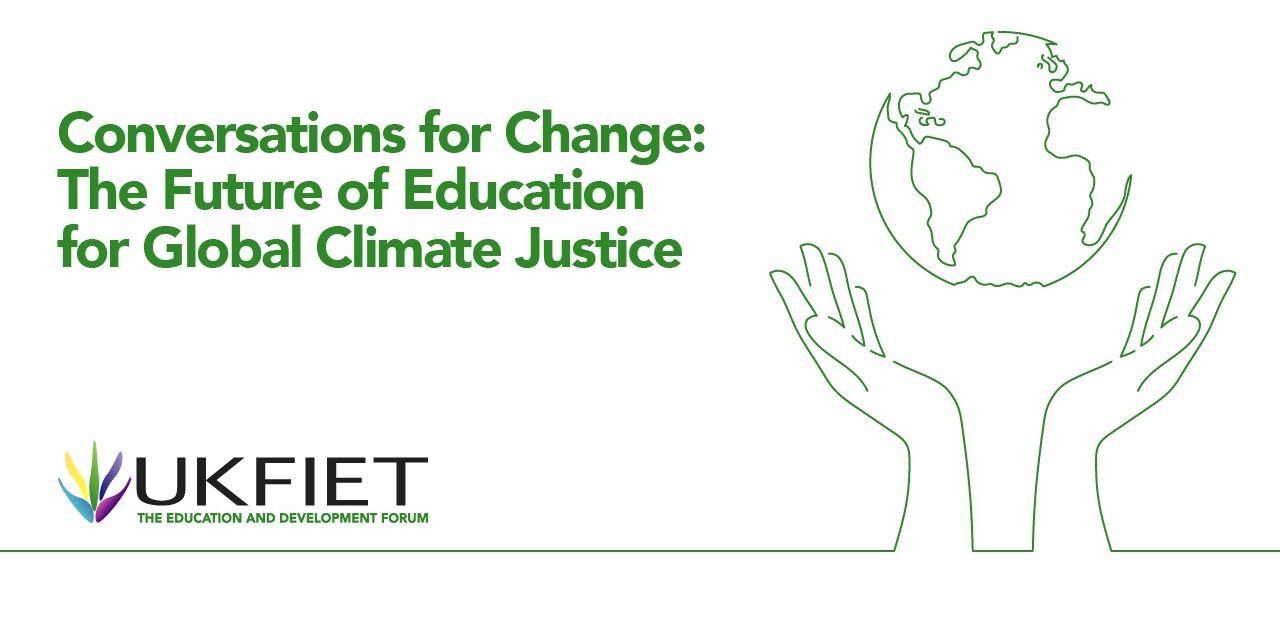
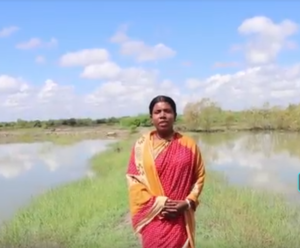
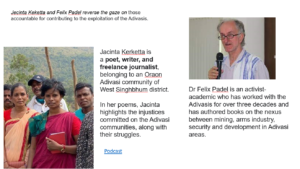
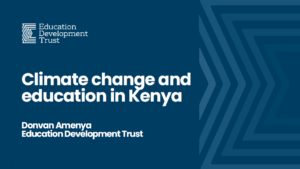
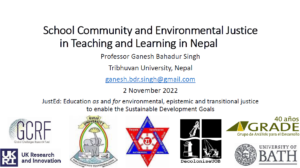
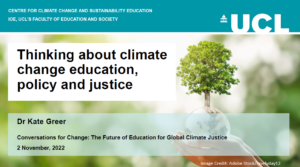
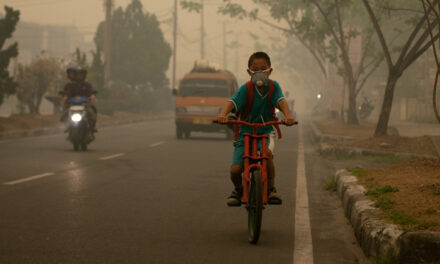
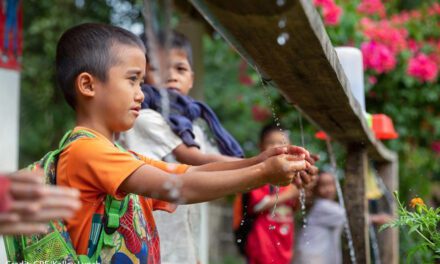
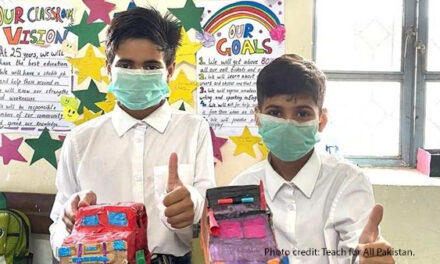
Interested to participate.
I am interested to attend this event in person.
Registration is now open